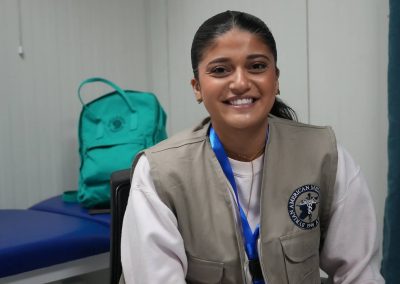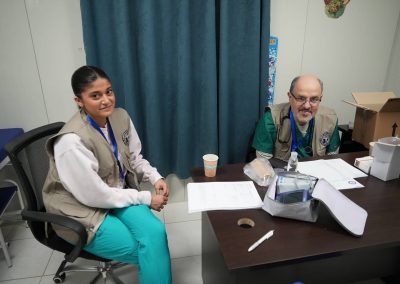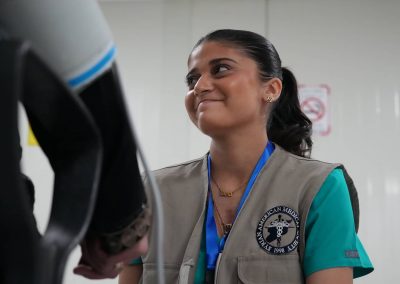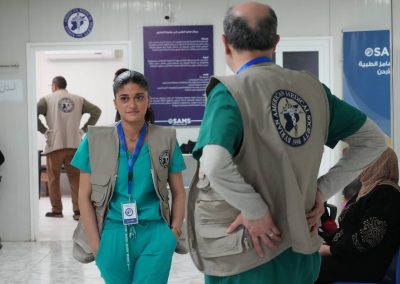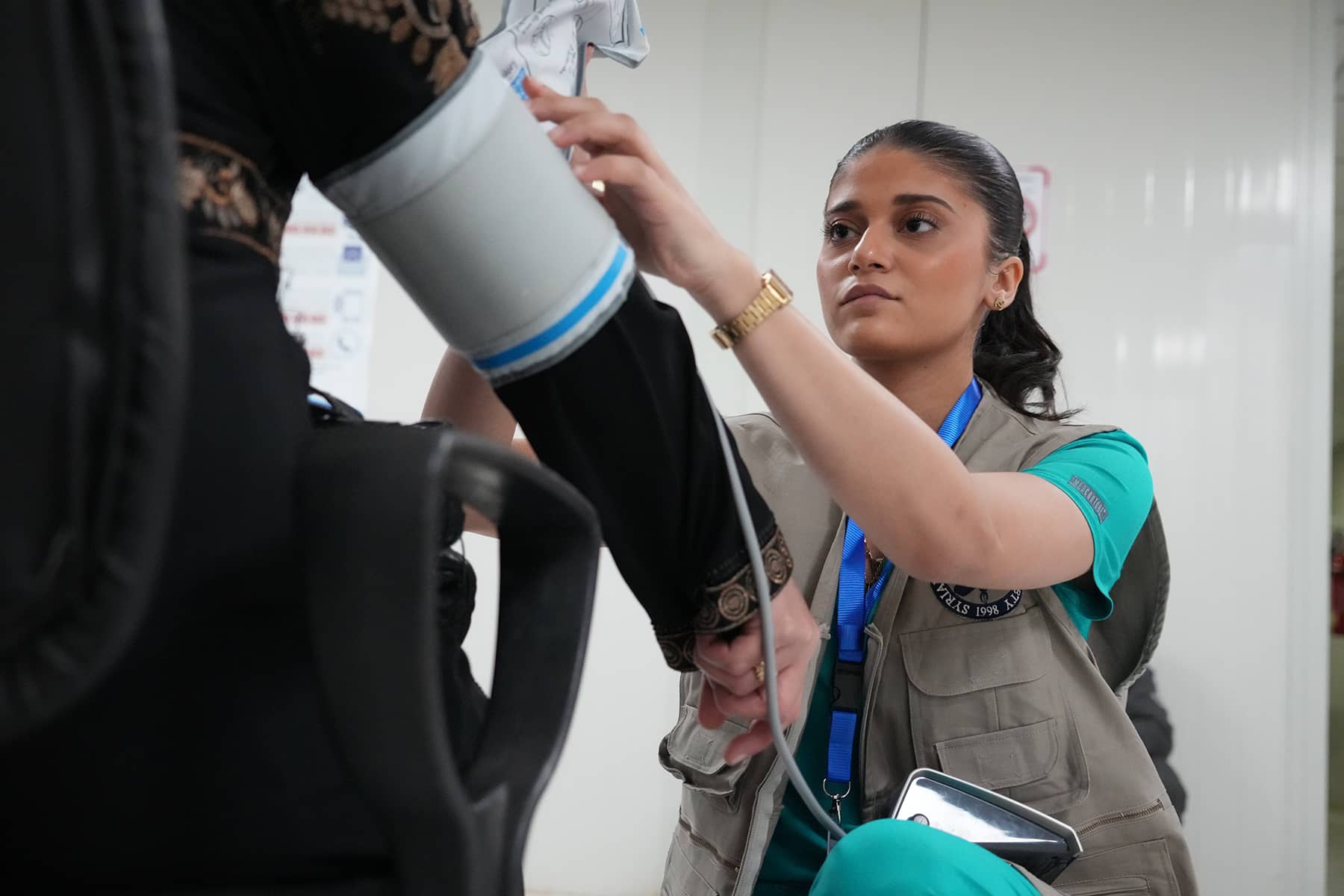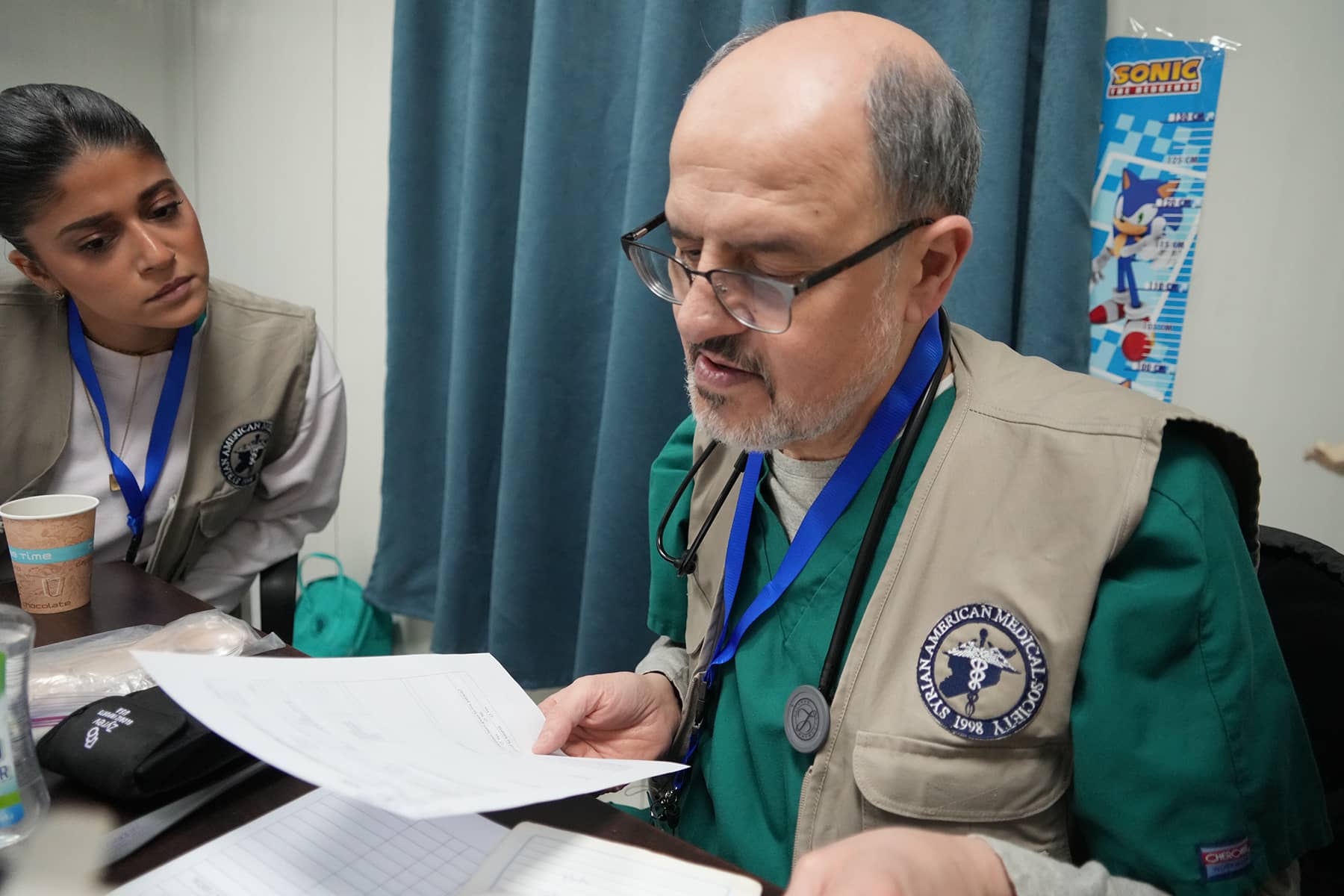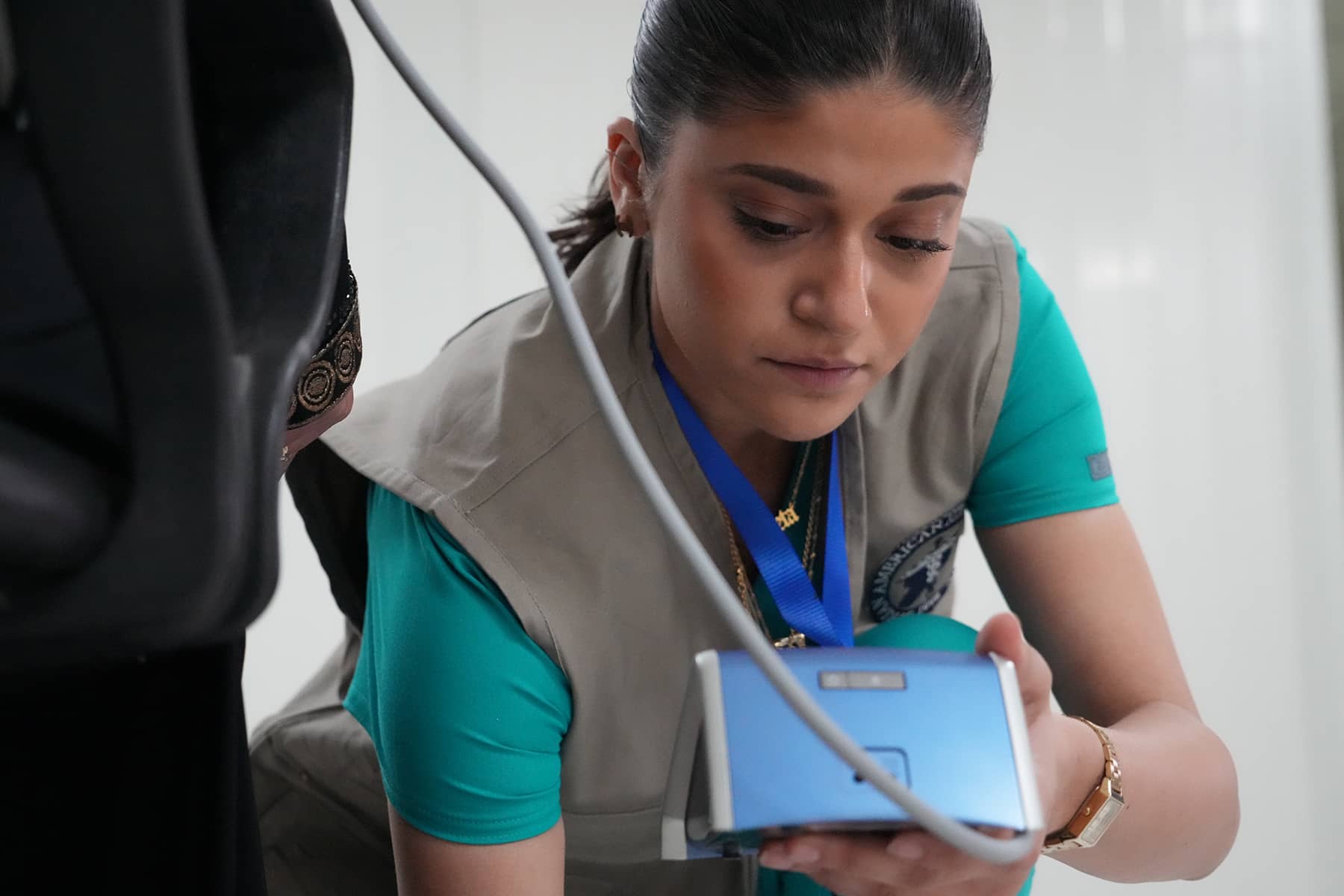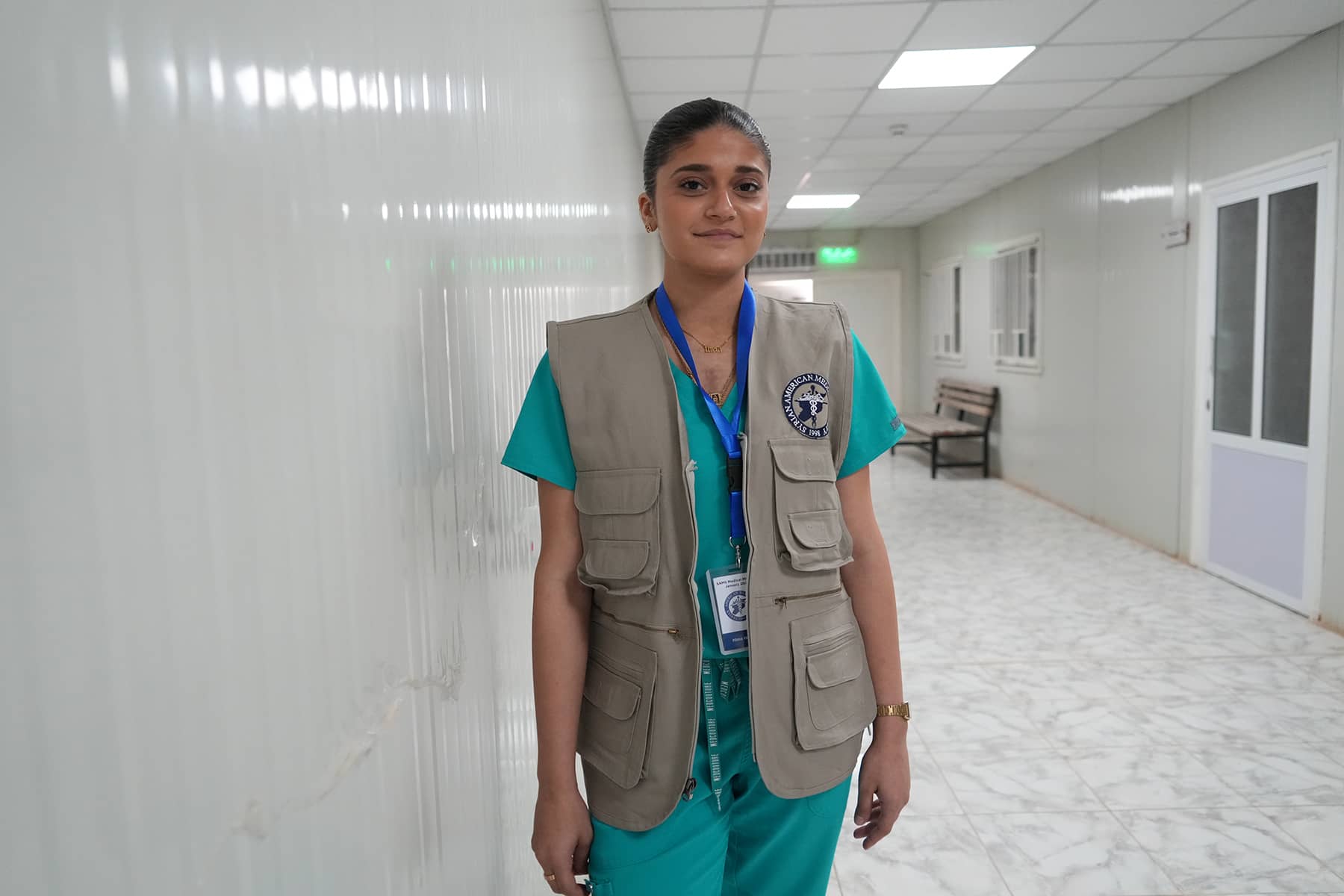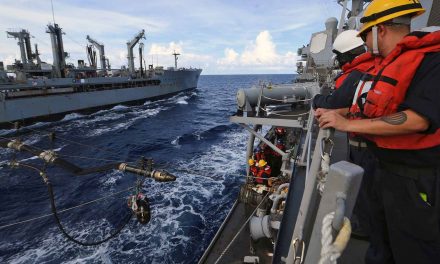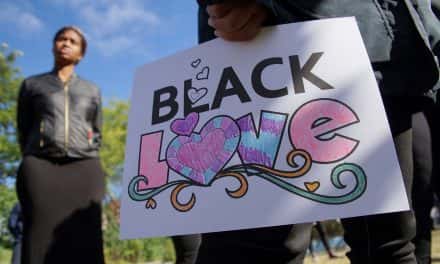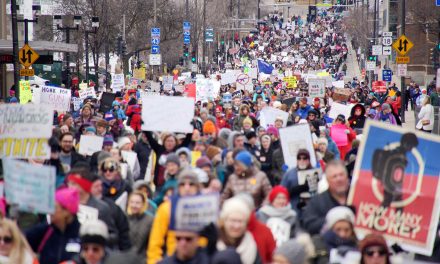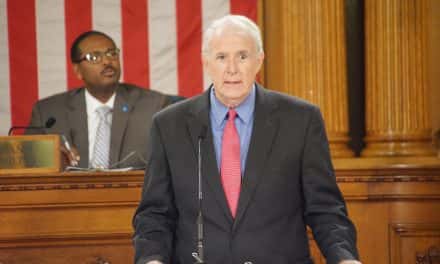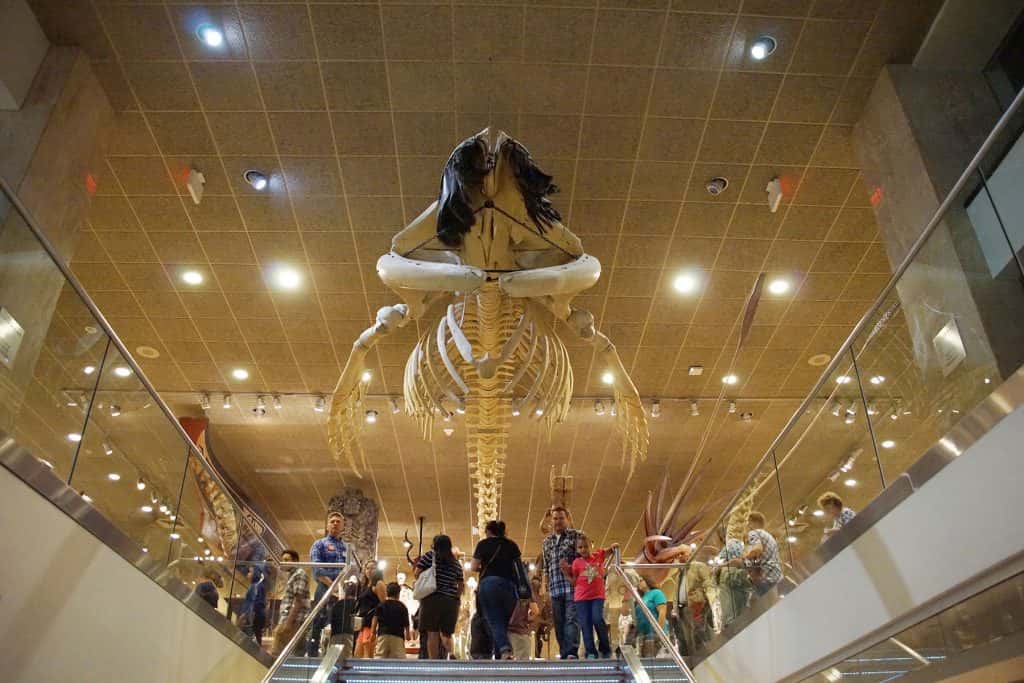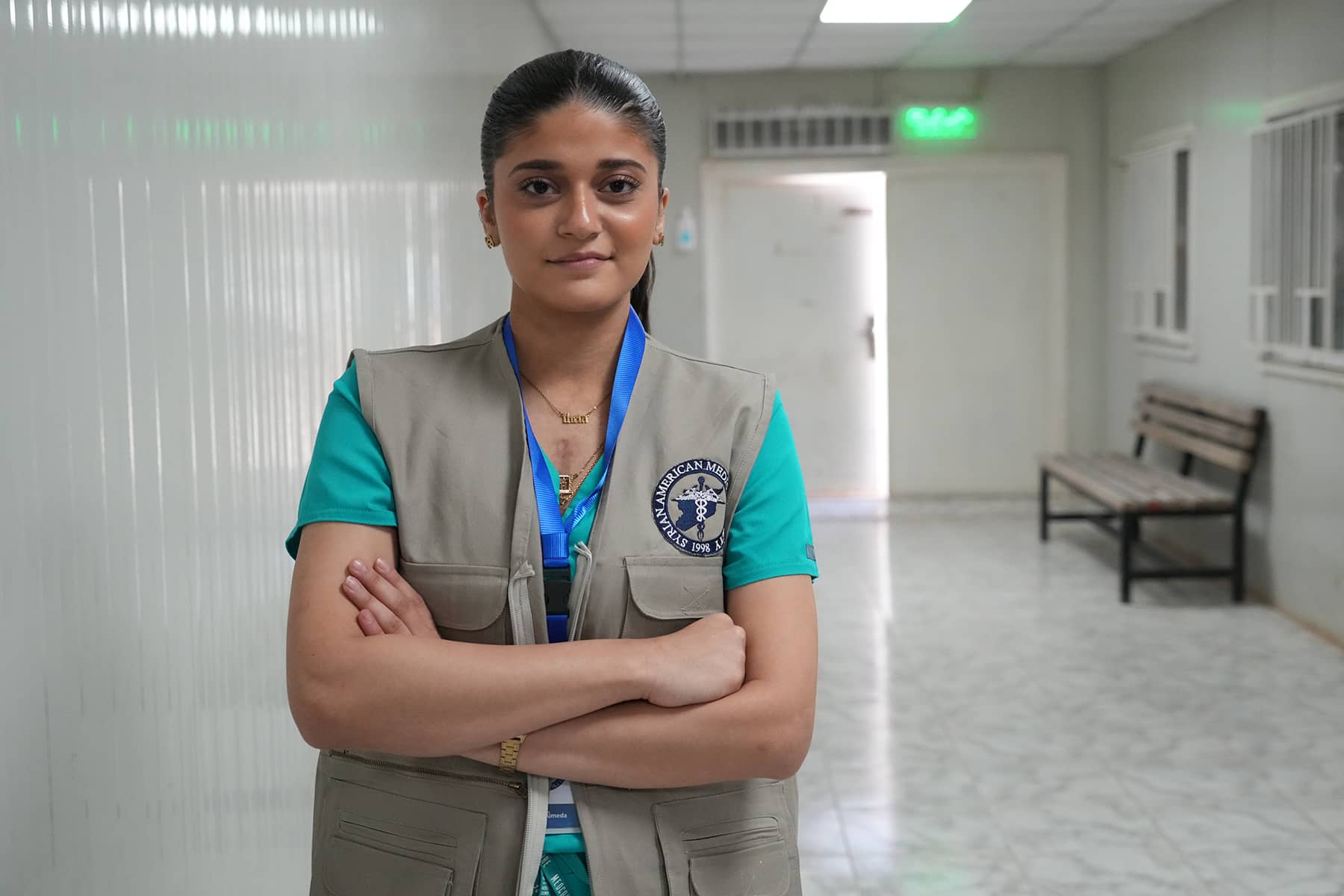
Medical Mission to Jordan: After more than a decade of Civil War in Syria, and continuing conflicts like the unprovoked Russian invasion of Ukraine that further displaced millions of civilians, understanding the longterm conditions that war refugees face remains relevant. But as public attention fades, such topics do not capture headlines today, even as the impact continues to be felt here in Milwaukee. mkeind.com/jordanmedicalmission
Blurs of red and blue lights, wailing sirens, pricks of needles, a series of deafening explosions, and the continuous fight for survival comprise my earliest memories.
By age ten, I had undergone ten open-heart surgeries and spent hundreds of days of my childhood in the hospital. Many of these procedures involved cutting my chest open and placing me on a machine that took over the function of my heart.
My health complications began at birth due to a hole between two chambers of my heart, commonly known as an atrial septal defect (ASD). My parents were told that without immediate intervention, I would only live a few days. Syria, however, lacked the medical expertise and supplies to carry out the procedure I needed.
As a result, we attempted to apply for a United States VISA or Green Card to carry-out the procedure in the states, but never heard back. So we attempted to find surgeons in our surrounding area. Following many second opinions, a doctor in Jordan agreed to attempt the high-risk operation.
After the surgery, my heart stopped beating for five minutes. Several failed attempts at resuscitation later, my mother spotted a faint yet spontaneous heartbeat on the monitor. The surgeons then shifted their focus to implanting a pacemaker, due to the accidental cause of a third degree branch block following the ASD repair. After three attempts to implant the device, three months in the hospital, and three strenuous recoveries, my condition finally stabilized.
As my health normalized, my family and I were expecting a mundane life and a normal childhood. I grew up in Aleppo, Syria, surrounded by a beautiful culture, a loving family, and a safe environment.
That was until one day, June 12, 2012. A day my family and I will never forget. Syria erupted into a state of Civil War. Power shutoffs, terrorist kidnappings, and escaped prisoners became the norm for life.
One morning, a bomb detonated in the heart of my hometown, Aleppo, forever changing my peaceful home. A week later, my father blurted out the chilling words: “Pack your stuff! We have to leave tonight! I was just almost kidnapped!”
Confused, my mother and I packed a small suitcase and raced to the airport, we departed from the only place we had ever known. We first sought refuge in Cairo, expecting to only be there for a couple of months until my country’s conditions calmed. But then months turned into years.
It was evident that we needed to begin our search for some place more long term and stable to live. Two failed attempts at settling in Cairo and Dubai filled us with fear and a sense of hopelessness. Then, luckily, in 2013 our United States Green Cards were approved at a time when we most needed it, 11 years after their application. We embarked to the United States with the hope of security, stability, and freedom.
The United States provided my family and I with a second chance at life. Even though we need to start from scratch, we were finally able to take a step toward finding a home. Like any Syrian immigrant, the acclimation to America was difficult. We were bombarded with cultural, social, and financial difficulties.
Yet, due to the efforts of my resilient and determined parents, we persevered. They are by far the strongest people I know. I would not be where I am today without their efforts. Although we had little to our name in this new and foreign country, they were able to build a stable environment for our family in a matter of a few months. Despite the challenges they had to overcome and the struggles they faced, they never failed to prioritize my education and motivate me to pursue my passions.
Due to the nature of my childhood and the countless hours I spent in a hospital bed, I grew to love medicine. I loved the empathy and the compassion I was provided by my healthcare professionals. I loved that my doctors were my advocates. They helped my family and I feel safe during an uncomfortable and vulnerable time in my life. I loved that they cared.
I promised myself that if I ever got the chance to leave the hospital as a patient, I would one day come back as a doctor. As a sophomore at Florida State University studying biology, my dream continues. I plan to attend medical school and go on to become a pediatric cardiologist.
I hope to one day become an advocate for children seeking medical care in developing countries, war zones, and refugee site. I want to continue working with organizations like the Syrian American Medical Society (SAMS) and the Doctors Without Borders Organization.
Attending the “Dr. Majdi Omar” SAMS Jordan January 2023 Medical Mission as a volunteer was an unforgettable experience, and one that I will cherish forever. SAMS, thank you for solidifying my passion for medicine and reminding me why I chose to pursue this type of work. Thank you for introducing me to some of the most selfless and humanitarian people I had ever met, people who I can only dream of becoming like. Thank you for helping and advocating for the people of my country. I cannot wait to come back on a mission one day in the near future as a doctor.
This editorial feature is one of a multi-part explanatory series about the “Dr. Majdi Omar” SAMS Jordan January 2023 Medical Mission. The journalism project embedded a Milwaukee Independent photojournalist, from January 21 to 26, 2023, with a group of Syrian American doctors from Milwaukee and Chicago. It documented their trip to Jordan and the medical work done at clinic locations like Za’atari Camp, Salt, Jerash, En Albasha and Marej in Amman, and Basma in Ma’adab. Medical Mission to Jordan: A journey from Milwaukee to help Syrian Refugees, shares the personal voices, stories, images, and conditions around those involved in the Syrian American Medical Society (SAMS) mission to Jordan. It also explores the refugee experience, and the intimate connections of local medical professionals, who put their work on hold and left their families behind for a couple weeks to provide healing to others who have endured a generation of trauma.
Series: Medical Mission to Jordan
- Medical Mission to Jordan: Traveling from Milwaukee to document the conditions of displaced Syrians
- Refugees in need: How the Syrian American Medical Society is able to provide vital medical services
- Waleed Najeeb: A spiritual duty to bring specialized relief to those suffering from a decade of war
- Za’atari Refugee Camp: Syrians struggle with a decade of life in the bubble of a temporary shelter
- Jihad Shoshara: How medical advocacy empowers Syrians living with guilt and trauma from a distance
- Deadliest in a decade: Untold numbers remain buried under rubble in Syria after devastating earthquake
- Medical Mission to Jordan: A visual diary from a week with Syrian refugees and SAMS volunteers
- Hazar Jaber: Advocating for oral health so poverty does not make sugar into a poison for children
- Bassel Atassi: Holding onto a family identity after Syria went from a home country to a ghost country
- Medical Mission to Jordan: The faces of Syrian refugees and their health struggles after years of war
- Abrar Qureshi: Finding a "Street of Happiness" among the faded ruins of hope in Za’atari
- Abdullah Chahin: Building a collective purpose to provide medical care as a Syrian in exile
- Zein Barakat: A spirit of volunteerism that nurtures an abundance of compassion, love, and humility
- Hima Humeda: A Syrian college student’s story from childhood heart surgeries to caring for war refugees
- A clarity of vision: Giving displaced Syrian children the ability to see a world full of possibilities
The 7.8 magnitude earthquake struck parts of Syria and Türkiye on February 7. It came a week after the SAMS Medical Mission ended, and while Milwaukee Independent finished the final production of this editorial series. The public is encouraged to make donations to the Syrian American Medical Society in support of their vital crisis relief work.
Hima Humeda
Lее Mаtz

